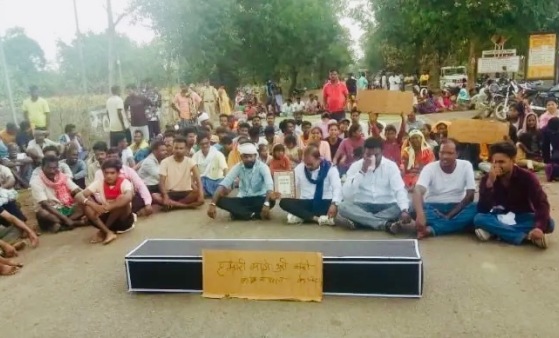
Multiple organisations have protested against the Meghalaya government’s plan to hold a Christian prayer service during the inauguration of the state’s first university, following controversial remarks by Education Minister Rakkam A. Sangma.
The ceremony, scheduled for 13 January at Captain Williamson Sangma State University in Balalgre, South West Garo Hills district, has sparked debate about secularism and religious identity in the northeastern Indian state. The minister announced that all state ministers and representatives from all church denominations would attend the event.
Minister Sangma defended the planned consecration, stating, “As a Christian State, we want to consecrate the first State university with a massive prayer meet.” He further justified the decision by drawing parallels with Hindu rituals performed at the new Parliament building, saying, “If the Parliament can be blessed with Hindu rituals why not Christian Ritual in a Christian State.” The Parliament reference pertained to its May 2023 consecration, which included the installation of the ‘Sengol’ - a gold-plated silver sceptre - amid Vedic mantras and a Ganesh puja.
The minister’s statements have drawn sharp criticism from multiple quarters. “The proposed religious ceremony at a state university reflects a concerning deviation from constitutional principles. As Christian leaders, we believe education should promote compassion and respect while staying true to India’s secular fabric, rather than becoming entangled in religious displays,” said Rev Dr Edwin H Kharkongor, Secretary of the Khasi Jaintia Christian Leaders Forum (KJCLF) while speaking to Christian Today.
Indigenous rights organisation Seinraij Jowai, through its president Hercules Toi and general secretary Arwotki Sumer, strongly opposed the move, arguing that labelling Meghalaya a “Christian state” undermines its indigenous heritage.
The group emphasised that during the pre-British period, only indigenous faiths existed in Meghalaya, citing traditional festivals such as Behdienkhlam, Chad Sukra, and Shad Suk Mynsiem as evidence of the region’s cultural identity. They specifically cited Articles 25 and 26 of the Constitution regarding religious freedom and referenced the Supreme Court’s 1994 S.R. Bommai case in their arguments.
The Thma U Rangli-Juki (TUR), a non-governmental organisation, called the minister’s comments “fundamentalist” and a “direct violation of the constitutional principle of secularism.” The organisation highlighted Meghalaya’s diverse religious landscape, including indigenous faiths such as Songsarek, Niamtre, and Niam Khasi, and stressed that publicly funded institutions must remain free from religious influences.
The Association of Niamtre Students of Shillong, through its General Secretary Teinam Dkhar, called the minister’s statements “illogical and irresponsible.” Citing landmark Supreme Court cases, Dkhar referenced the Kesavanada vs State of Kerala and Indira vs Rajnarain rulings, which established that the state shall not discriminate against citizens on religious grounds and shall have no religion of its own.
The university, named after Meghalaya’s first Chief Minister, Captain Williamson Sangma, saw its building inaugurated in January 2023 by current Chief Minister Conrad K. Sangma, though it is yet to begin formal operations. The upcoming ceremony will also see the Vice-Chancellor assume office.
The controversy has highlighted the complex political dynamics in Meghalaya, where the National People’s Party (NPP) governs in alliance with the Bharatiya Janata Party, two regional parties, and independents. While critics have pointed to the BJP’s role in conducting Hindu rituals at the Parliament inauguration, they argue this doesn’t justify what TUR termed “competing religious fundamentalism” in Meghalaya.
Various organisations have called for Chief Ministerial intervention to protect indigenous religious practices and maintain religious harmony in the state, urging the government to focus instead on providing quality education and ensuring timely disbursement of scholarships.
“While Meghalaya is known for its grand ceremonies and festivals, it’s troubling that the state ranks among the lowest in educational standards. The government’s resources would be better spent addressing the fundamental needs of students and teachers rather than orchestrating elaborate religious inaugurations," noted Kharkongor.




